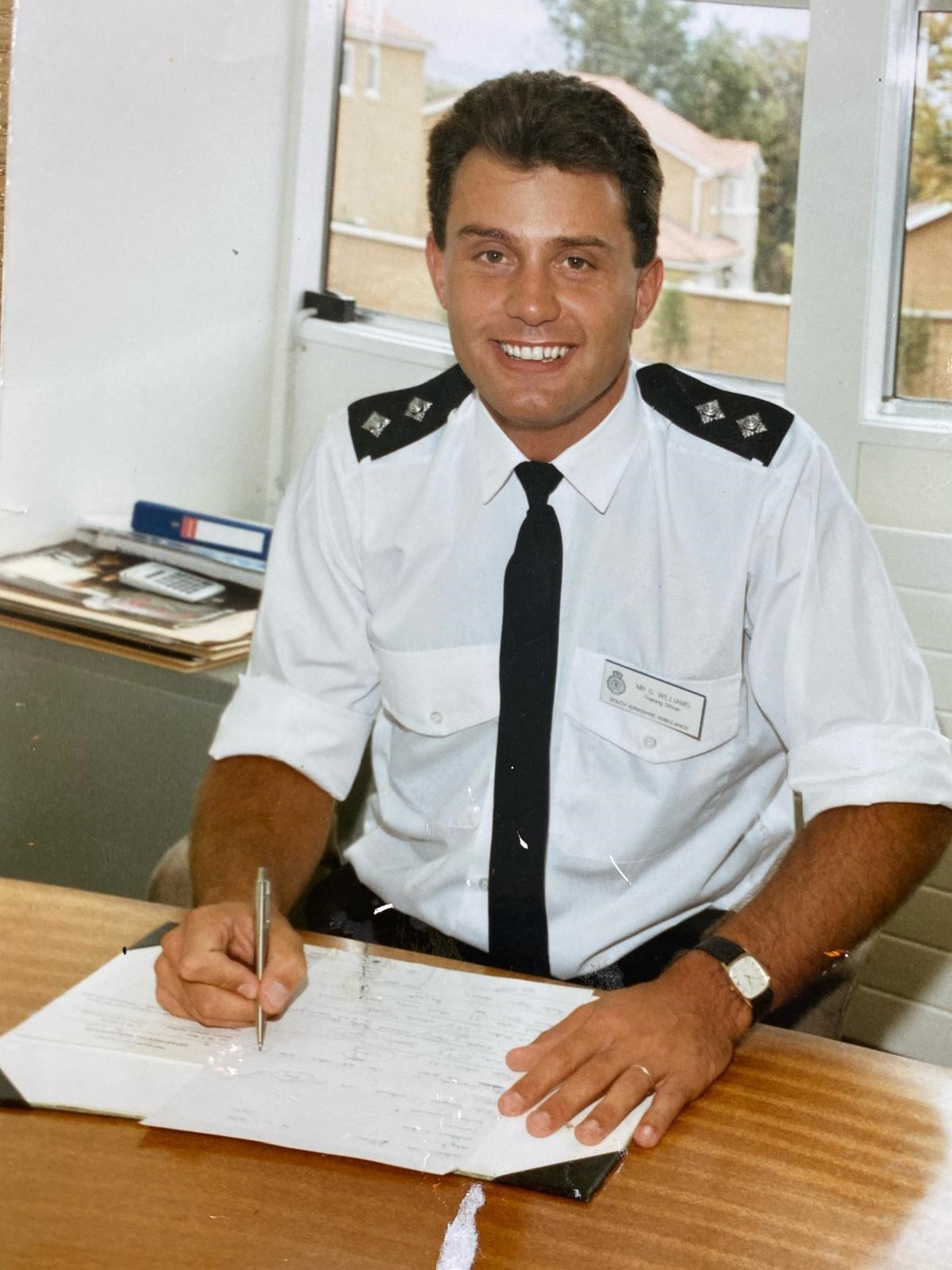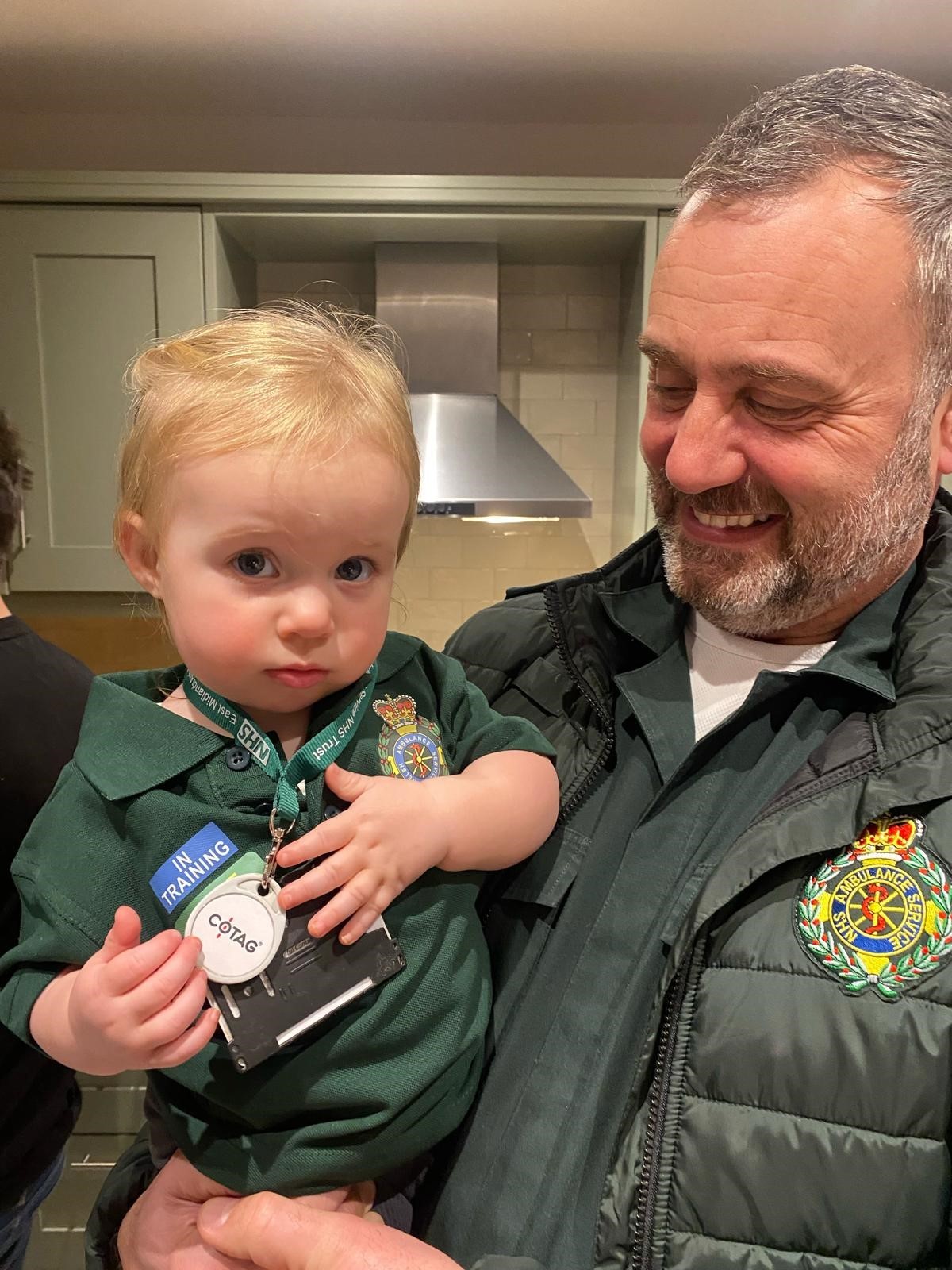Held in high regard by many who have worked with him at EMAS and across the wider NHS, David Williams has retired from his role as Deputy Director of Operations at EMAS.
David, 64, from South Yorkshire, and latterly Derbyshire, began his career at EMAS in 2005. This was initially in the role of General Manager for the North Division before moving General Manager for the Lincolnshire Division for a short while to support the Division through the EMAS/Lincolnshire merger.
He went on to become Assistant Director of Operations, responsible for the day-to-day running of our service delivery to patients across our 999 Emergency Operations Centres, frontline A&E response and emergency preparedness, resilience and response (EPRR).
In 2011, David was asked to support the Yorkshire Ambulance Service, where he served as Director of Operations. He rejoined EMAS in 2017 to lead the improvement of the Derbyshire Non-Emergency Patient Transport Service. Later, he returned to the Emergency Operations Directorate, initially supporting the Lincolnshire Division as General Manager and then serving as Deputy Director of Operations.
Prior to EMAS, David’s career in the ambulance service can be traced back to September 1982 in Sheffield, when he was known by the now slightly outdated term of “Ambulanceman”.
David said: “In my early days I started my NHS career on outpatients, which today is known as Non-Emergency Patient Transport Service.
“I loved working on outpatients as a 22-year-old, as I got to listen to the stories of our patients, some of them had lived through difficult times including both the first and second world wars, it was humbling to hear their stories, I met some very lovely people.
“For some of them, they looked forward to their weekly appointments, as it was often their only opportunity to get out of the house, to see and speak to our staff and other patients.
“It was humbling to spend time with them and really helped develop my own humility and compassion for others – which are important traits when working in the ambulance service and anywhere in the NHS for that matter.
“Following my time on outpatient services, I trained to become a paramedic in a local scheme prior to the introduction of the national extended trained scheme, the fore runner what is now known as the national paramedic programme.
“Upon becoming a fully qualified paramedic, and after gaining further experience out on the road, I progressed to become an instructor. This involved training future paramedics coming through the service.”

In the mid-eighties the UK ambulance services were looking to the USA for new ideas in emergency care treatment for trauma patients in the pre-hospital setting. In order to learn best practice from outside the UK and replicate back to his local service (South Yorkshire Ambulance Service), David spent some time in Buffalo University, New York State.
David added: “While the research I did at the University was important, the crucial learning took place when I went out with emergency ambulance and Mercy Flight helicopter responders within the Buffalo area.
“The helicopter was piloted by a police officer (Sheriff) who was an ex-Vietnam War pilot, he had no problem landing in some very tight locations!
“I quickly learned that the way they dealt with pre-hospital patient trauma, ensured emergency crews acted in a much more focused way in the best interest of the patients, greatly increasing the patient’s chances of survival.
It was a much more focused and rapid treatment process on scene, before conveying to hospital for vital definitive care.”
In August 1992, David was responsible for bringing the University Faculty Team from Buffalo to South Yorkshire, England, to implement the Pre-Hospital Trauma Life Support training in the UK. To this day, it’s still one of David’s proudest achievements.
In addition to working for the ambulance service, David has also held numerous positions across several NHS organisations.
This included the National Blood Service (Trent Region), a stint as Emergency Admissions Manager in Sheffield, working for the Modernisation Agency and eventually working for the South Yorkshire Strategic Health Authority as Deputy Head of Modernisation (leading on improving, developing and implementing emergency and urgent health care for the population of South Yorkshire).
No matter what job David has done, his commitment to the NHS has remained consistent for over his long career.
Reflecting on his numerous career paths with the NHS, David said: “I’ve really enjoyed my time working across the NHS, I feel very proud and privileged to have played my part.
“Regardless of whether I was working in outpatient care, A&E, local authorities, Strategic Health Authorities, primary care, or acute care, my goal was simple: to make a positive impact and shape the environment as a leader and clinician. This way, my colleagues could perform their challenging jobs to the best of their ability in the best possible environment.”
 Looking back at his time at EMAS, David added: “Having worked many different roles over the past 42 years, I can say without any doubt that EMAS has stood out as being a great place to work.
Looking back at his time at EMAS, David added: “Having worked many different roles over the past 42 years, I can say without any doubt that EMAS has stood out as being a great place to work.
“The people I have worked with here have been an absolute pleasure to know. We are often very hard on ourselves and organisations we work for, but I can honestly say that in EMAS the staff come to work to deliver the best service they can, often under difficult circumstances. I’m very glad I finished my career at EMAS!”
In retirement, David plans to spend more time with his grandchildren and also in his favourite place, Ireland.
Ben Holdaway Director of Operations at East Midlands Ambulance Service said:
“David should be incredibly proud of all his achievements over what has been a fantastic career in the NHS, where he has undoubtably made a significant different to many people’s lives.
“Not only has David achieved great things over the last 40 years, but he’s also been a pivotal part in developing the services we offer, and has been a great leader, mentor and role model to many across the health service.
“He has been a top bloke to work with.”